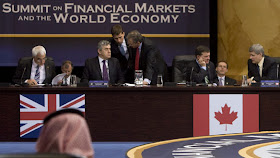by Walden Bello
 By Walden Bello*
*President of Freedom from Debt Coalition, senior analyst at Focus on the Global South, and professor of sociology at the University of the Philippines. The author would like to thank James Matthew Miraflor and Bobby Diciembre of the Freedom from Debt Coalition for their assistance.
By Walden Bello*
*President of Freedom from Debt Coalition, senior analyst at Focus on the Global South, and professor of sociology at the University of the Philippines. The author would like to thank James Matthew Miraflor and Bobby Diciembre of the Freedom from Debt Coalition for their assistance.
Assaulted on all sides owing to its entanglement in the ZTE-NBN corruption scandal, the administration has confronted its critics with the image of an economy that is purring along, that is doing just fine except for the rise in the price of rice, for which it says it is blameless.
Deconstructing "Growth" in 2007
But the state of the economy, even some of the administration's friends have pointed out, is a thin reed on which to rest. In a recent article, Peter Wallace, an influential consultant, deconstructed the 7.3 per cent growth rate recorded for the Philippines in 2007, showing that the figure is actually a statistical fluke that stems from the way the measure Gross Domestic Product (GDP) is computed. The figure actually masks something negative: the fall of imports by 5.4 per cent. "So because we had less imports, GDP looked good," Wallace says. "From where I sit, that does not indicate a strong, growing economy, the best in 31 years."i With no less irony, the World Bank agrees: "Remarkably, weaker import growth made the largest arithmetical contribution to the growth acceleration in 2000-07 compared to 1990-99." It added that this was not "consistent with sustained fast growth in the longer term."ii





